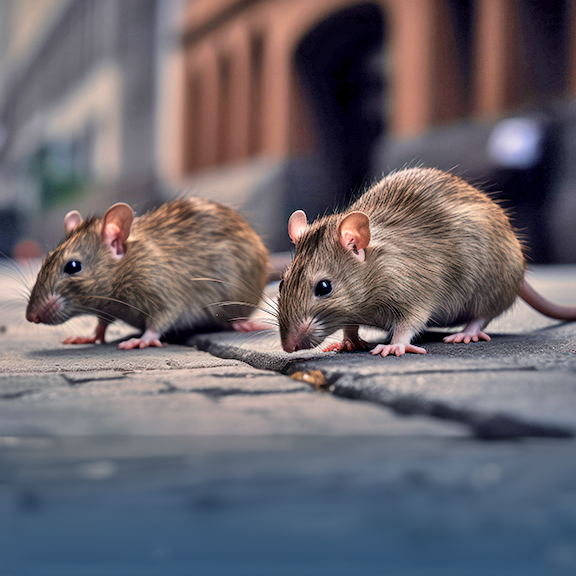Mice & Rats
Rodents are widespread pests found in homes, businesses, and agricultural areas worldwide. These small mammals - including mice, rats, squirrels, and chipmunks - are notorious for their sharp teeth and rapid reproduction. Their behavior and habits make them difficult to manage, especially as they live in close proximity to humans. Understanding their characteristics is crucial to keeping these pests under control.
Common Rodent Species
Among the most prevalent rodent pests are house mice (Mus musculus) and Norway rats (Rattus norvegicus). Mice are small and agile, so they tend to enter homes through tiny openings. Norway rats are larger and typically reside in basements and attics. Roof rats (Rattus rattus) are climbers and commonly nest in higher places, and squirrels (Sciurus carolinensis) are often found in attics or gardens.
Why Rodents Enter Our Homes
Rodents thrive in environments with access to food, water, and shelter, making human habitats ideal for nesting. Mice and rats tend to hide in small, concealed spaces like walls or attics, where they can reproduce undisturbed. Squirrels and chipmunks are more visible, nesting in trees or on rooftops to find warmth and safety.
Rodent Damage to Property
Rodents can cause significant damage to property. They gnaw on wires, insulation, and furniture, which can lead to costly repairs and even fire hazards. Mice and rats, in particular, are notorious for chewing electrical wiring. These rodents don’t just contaminate food, but also transmit diseases and create significant health hazards for both humans and pets.
Rodent Behavior at Night
Rodents are primarily active at night, emerging under the cover of darkness to forage for food and water. They are skilled climbers and swimmers, able to reach areas that are difficult for humans to access. Signs of rodent activity include scratching noises and visible damage, often heard at night as they search for food.
Signs of an Infestation
Common signs of rodent infestations include droppings, gnaw marks, visible nests, and unpleasant odors. If you notice any of these signs, it's important to address the problem promptly to prevent further damage and health risks.
Rodent Prevention Tips
To prevent rodent infestations, you should start with sealing potential entry points. Repair cracks in walls and foundations, secure windows, doors, and vents, and keep food in airtight containers. For ongoing or extensive infestations, seeking professional pest control assistance may be essential. Early intervention is key to avoiding widespread issues.



